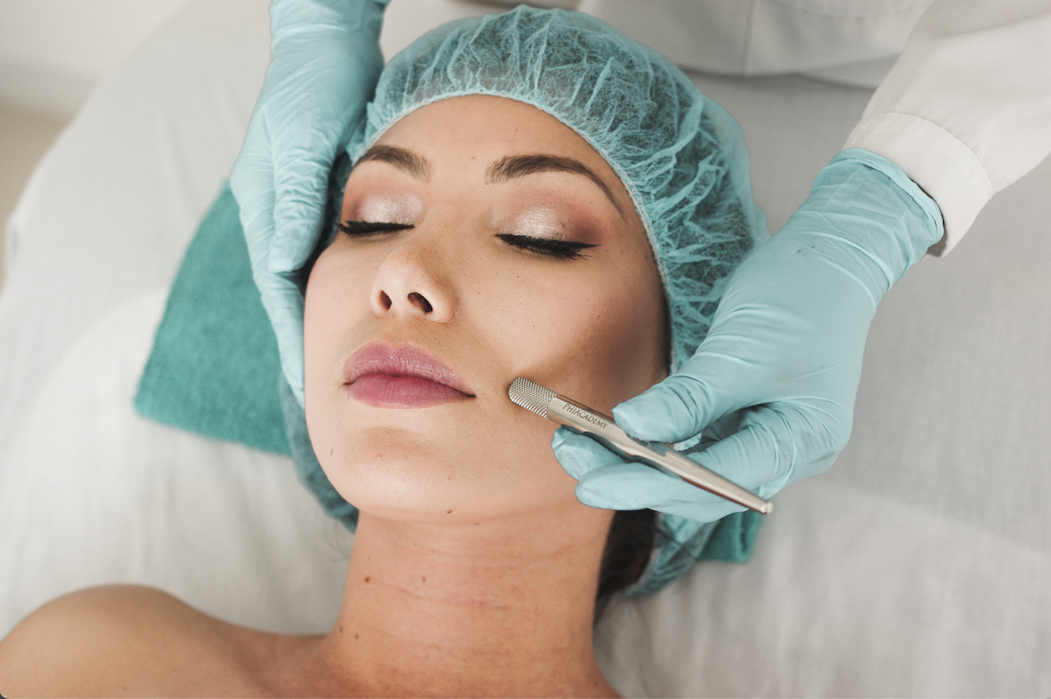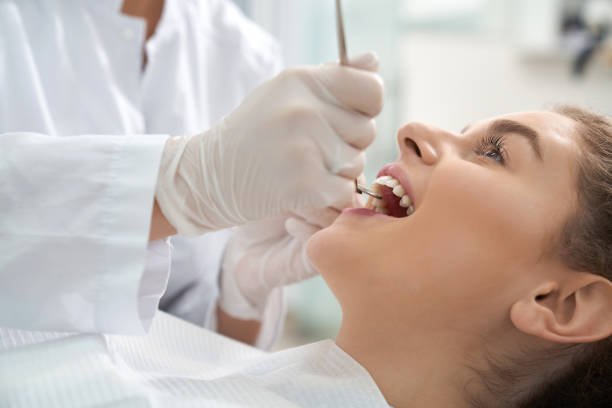Skin health is an integral part of overall wellness, yet it is often overlooked until issues arise. Modern dermatology has evolved significantly, offering advanced treatments that address everything from common skin conditions like acne and eczema to more complex concerns like aging skin and skin cancer. Understanding the science behind skin health, how to care for your skin, and the treatments available can empower you to take control of your skin’s well-being and maintain a youthful, radiant complexion.
This comprehensive guide will take you through the essentials of modern dermatology(امراض جلدية), from basic skin care routines to the latest innovations in skincare treatments. Whether you are dealing with a specific skin issue or simply want to improve your skin’s health, this guide has something for everyone.
What is Dermatology?
Dermatology is a branch of medicine that focuses on the diagnosis, treatment, and prevention of skin diseases and conditions. The field encompasses various sub-specialties, including cosmetic dermatology, pediatric dermatology, and dermatopathology, which deals with the microscopic diagnosis of skin diseases.
Modern dermatology not only addresses skin problems but also works to improve the aesthetic appearance of the skin. Today, dermatologists utilize a combination of traditional methods and cutting-edge technologies to enhance skin health and tackle complex concerns.
Understanding Your Skin
Your skin is the largest organ in your body, and it serves as the first line of defense against environmental toxins, harmful microorganisms, and physical damage. It plays a critical role in regulating temperature, storing water, and producing vitamin D. Given its vital functions, maintaining optimal skin health is essential for overall wellness.
The Skin’s Structure
The skin consists of three main layers:
- Epidermis – The outermost layer of the skin that serves as a protective barrier.
- Dermis – Located beneath the epidermis, this layer contains blood vessels, hair follicles, and connective tissue.
- Hypodermis – The innermost layer, consisting mostly of fat and connective tissue, which helps to insulate the body and absorb shocks.
Each of these layers plays a key role in skin health, and they can be affected by various internal and external factors like genetics, diet, environmental pollutants, and stress.
Common Skin Conditions
Several skin conditions affect people of all ages. Some of the most common ones include:
- Acne: This condition occurs when hair follicles become clogged with oil, dead skin cells, and bacteria. It typically appears as pimples, blackheads, or cysts.
- Eczema: Also known as atopic dermatitis, eczema is a chronic condition that causes dry, itchy, and inflamed skin.
- Psoriasis: Psoriasis causes skin cells to multiply too quickly, leading to thick, scaly patches of skin.
- Rosacea: A skin condition that causes redness and visible blood vessels, often on the face.
- Skin Cancer: Skin cancer includes types like basal cell carcinoma, squamous cell carcinoma, and melanoma, each of which requires specialized treatment.
Advanced Dermatology Treatments
While maintaining a proper skincare routine is essential, dermatologists offer a range of advanced treatments that can enhance skin health and address more severe concerns.
1. Chemical Peels
A chemical peel involves applying a solution to the skin to remove dead skin cells and stimulate cell turnover. This treatment helps to reduce signs of aging, treat acne scars, and improve skin texture. There are various types of peels, including superficial, medium, and deep peels, depending on the skin issue being addressed.
2. Laser Skin Resurfacing
Laser treatments, such as fractional CO2 laser and erbium laser, are used to treat various skin concerns, including wrinkles, pigmentation, acne scars, and age spots. These lasers work by targeting the skin’s deeper layers to promote collagen production and improve skin texture.
3. Botox and Dermal Fillers
Botox injections are used to relax facial muscles that cause wrinkles, particularly around the eyes, forehead, and mouth. Dermal fillers, on the other hand, restore lost volume to areas such as the cheeks, lips, and under-eye area. Both treatments are minimally invasive and offer long-lasting results with little downtime.
4. Microneedling
Microneedling uses fine needles to create tiny punctures in the skin, stimulating the production of collagen and elastin. It’s an effective treatment for reducing fine lines, acne scars, and large pores.
5. Cryotherapy
Cryotherapy involves the use of extreme cold to remove skin lesions, warts, and precancerous cells. This technique freezes abnormal cells, causing them to die and eventually slough off the skin.
6. Platelet-Rich Plasma (PRP) Therapy
PRP therapy, also known as the “vampire facial,” involves using your own blood plasma to promote healing and rejuvenation. The plasma is injected into the skin to stimulate collagen production and improve texture and tone.
Skin Care for Specific Concerns
Different skin types and concerns require tailored treatments. Here’s a breakdown of the best approaches for various skin needs:
Acne-Prone Skin
For acne, dermatologists may recommend topical treatments like benzoyl peroxide, salicylic acid, or retinoids. For more severe cases, oral medications such as antibiotics or oral retinoids may be prescribed. In-office treatments like chemical peels or laser therapy can also be effective in reducing acne and scarring.
Aging Skin
For signs of aging, dermatologists may recommend treatments such as Botox, dermal fillers, laser resurfacing, and microneedling. These treatments help to reduce fine lines, wrinkles, and age spots, providing a more youthful appearance.
Hyperpigmentation
Hyperpigmentation, or dark spots, can be treated with topical products containing ingredients like hydroquinone, retinoids, and Vitamin C. Chemical peels, lasers, and microneedling can also help fade dark spots and even out skin tone.
Dry or Sensitive Skin
For sensitive skin, it’s crucial to use gentle, fragrance-free products that don’t irritate the skin. Dermatologists often recommend barrier-repair moisturizers and hydrating treatments like facials and masks to keep the skin hydrated and calm.
FAQs
1. How often should I see a dermatologist?
It’s a good idea to visit a dermatologist at least once a year for a routine skin check, especially if you have concerns about aging, skin cancer, or persistent skin conditions. However, if you have specific concerns, such as acne or rosacea, you may need to see your dermatologist more frequently.
2. Are chemical peels safe?
Yes, chemical peels are generally safe when performed by a licensed dermatologist. However, there are different types of chemical peels, so it’s important to choose the right one for your skin type and needs. Always follow your dermatologist’s aftercare instructions to avoid complications.
3. What is the best sunscreen for my skin type?
Choose a broad-spectrum sunscreen with an SPF of 30 or higher. If you have oily skin, opt for a non-comedogenic, oil-free sunscreen. For dry skin, consider a hydrating sunscreen with added moisturizing ingredients. If you have sensitive skin, choose a sunscreen with physical blockers like zinc oxide or titanium dioxide.
4. Can I combine different dermatology treatments?
Yes, many dermatology treatments can be combined for optimal results. However, it’s essential to discuss your treatment plan with your dermatologist to ensure the procedures complement each other and don’t cause irritation or side effects.
Conclusion
Mastering skin health is a lifelong journey that requires attention, care, and an understanding of the latest dermatological advancements. By following a proper skincare routine, seeking professional treatments, and addressing specific skin concerns, you can achieve healthier, more radiant skin. Whether you’re dealing with acne, signs of aging, or hyperpigmentation, modern dermatology offers a wide array of options to enhance your skin’s health and appearance.
With the right knowledge and guidance from dermatologists, mastering skin health is more achievable than ever before. Keep your skin healthy, protected, and glowing by staying informed and embracing the best skincare practices available.















Leave a Reply